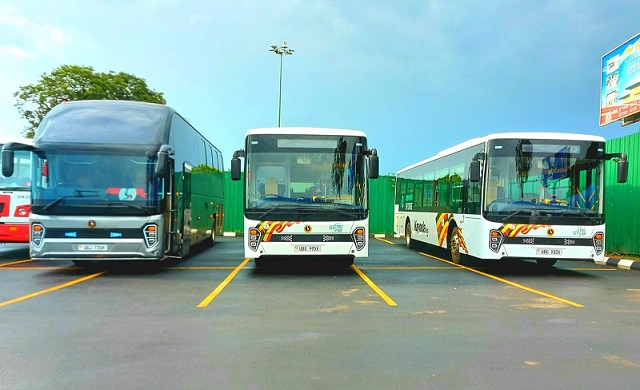
The new technology is meant to minimize pollution and conserve the environment
Kampala, Uganda | THE INDEPENDENT | Uganda’s manufacturers are ready to invest in the emerging E-Mobility sub-sector but the government’s inconsistency in investment policies will derail progress, according to the Uganda Manufacturers Association Chairman, Deo Kayemba.
Kayemba, who spoke during the Presidential CEO Forum’s High-Level Consultative Stakeholder Engagement Meeting at the Kampala Serena Hotel on July 24, said all prospective investors in the E-Mobility sub-sector need assurance that their investment will yield returns.
“We can invest in E-Mobility but our projects should be bankable based on the government policies,” he said, in reference to the government’s decision to zero rate import of electronic and hybrid vehicles effective July this year.
“The government needs to tell us what it needs…and protect us (from external competition). Then, we shall take out money and invest in these areas.”
Kayemba said the government’s move to encourage investors to invest in E-Mobility locally but at the same time allow the importation of similar products at zero rates is counter-productive to the would-be local producers.
He said there is a need for the government to incentivize investment in the E-Mobility like it is in other countries as the world race towards clean energy-motorized vehicles to save the planet from pollution.
Early this year, Tunisia became the latest country to introduce e-mobility incentives as governments across Africa bet on tax breaks and other incentives to increase the roll-out of electric vehicles.
The country’s Finance Act 2023, which came into effect on January 1, states that “customs duties on electric vehicle charging equipment have been reduced to 10% and the value-added tax (VAT) has been reduced to 7%.”
French oil marketer, TotalEnergies is said to be installing the first network of recharging electric vehicles in 19 service stations in Tunisia. Similarly, German-Tunisian start-up Bako Motors plans to deploy locally-made tricycles and electric bicycles in the North African nation.
Rwanda has unveiled a wide set of tax breaks to push the adoption of e-vehicles. The East African nation exempted electric cars, spare parts, batteries, and charging station equipment from VAT, import, and excise duties.
Kenya has halved the import duty for fully electric vehicles to 10% as the state-owned firms Kenya Power, an electricity distributor, and KenGen, a power generator begin phasing out fossil fuel-powered vehicles in their fleets.
Egypt has granted used passenger cars with electric or dual motors a 10% discount on the Free On Board (FOB; the value at the point of export) value, to expand the importation and use of electric vehicles.
South Africa is also mulling tax incentives and pumping billions of dollars into green energy and e-mobility industries, with a focus on saving its auto exports. Both the UK and Europe its key markets have announced a shift to green energy-powered vehicles.
The UK Government said it will introduce a zero-emission vehicle mandate setting targets requiring a percentage of manufacturers’ new cars and van sales to be zero emissions rated, each year from 2024.
Currently, Uganda has several companies that are eying at reaping in E-mobility including the state-owned Kiira Motors Corporation and Spiro which plans to introduce electric motorbikes.
Kayemba said there’s also a need for Ministries, Departments and Agencies to align their policies to stir growth in the E-Mobility sub-sector
Steven Mwanje, the Board chairman at Tondeka Bus Transport Company Limited, a Kampala-based transport services provider in the city said there is a need for the government to incentivize investment in E-Mobility, ensure proper road maintenance, and facilitate training of the labour force to match with the new technologies.
Barbra Mulwana, the chairperson of the Presidential CEO Forum said the manufacturers are now emphasizing climate change to ensure sustainable development.
Government’s response
Ramathan Ggoobi, the permanent secretary in the Ministry of Finance, Planning and Economic Development, noted the concerns raised adding that feedback will be delivered to the relevant policymakers for redress.
Monica Musenero Masanza, the Minister for Science, Technology and Innovation, however, said the ministry is working well with the many MDAs save for the finance ministry for harmonization, budgeting, and negotiation with the wider financial sector to support the innovations.
 The Independent Uganda: You get the Truth we Pay the Price
The Independent Uganda: You get the Truth we Pay the Price





